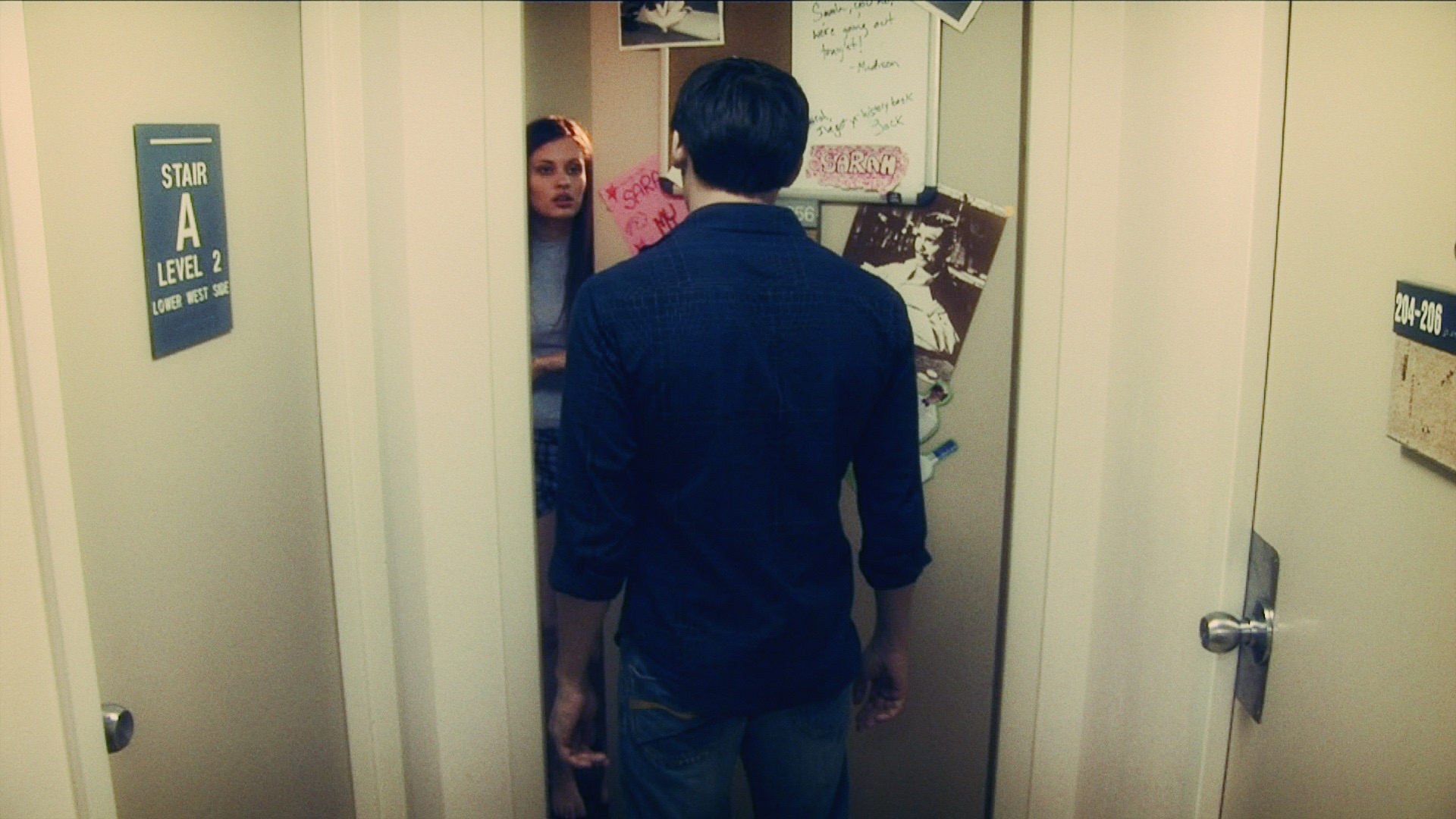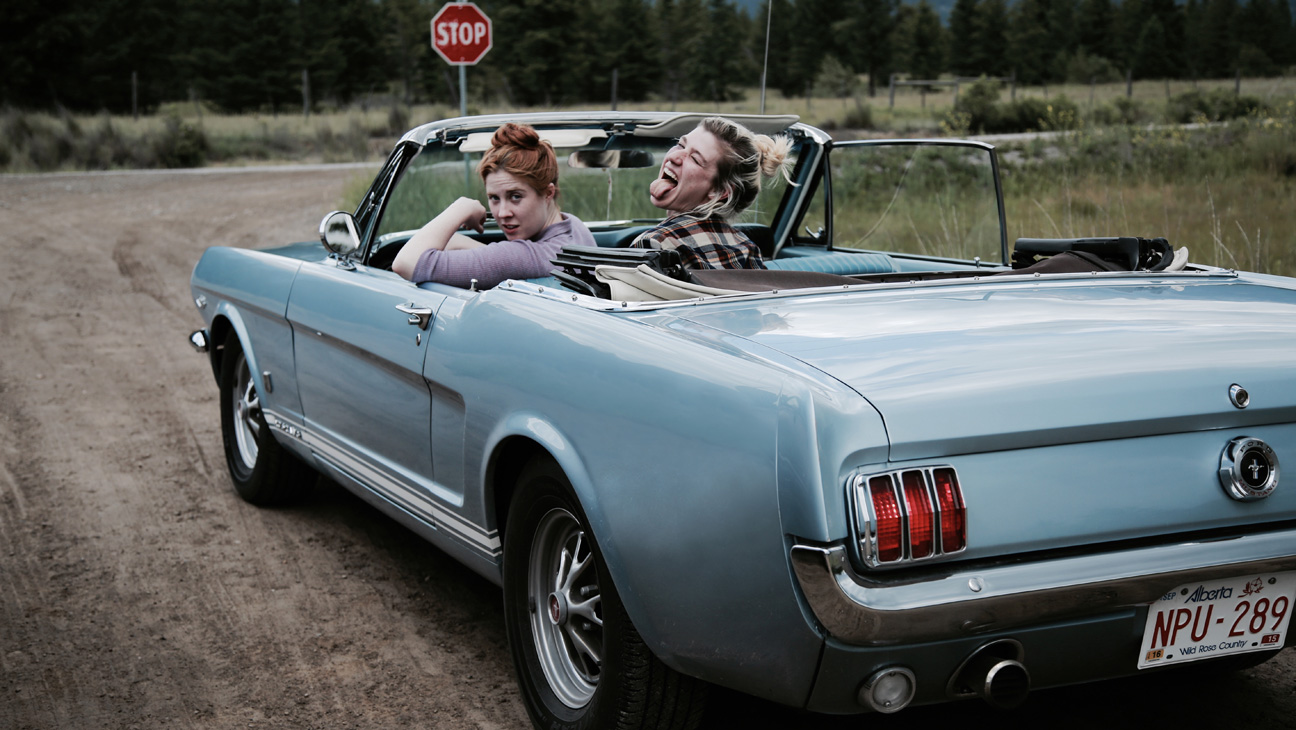There’s something a bit admirable about the intent behind Somebody’s Darling. Of the social issues one could adequately explore on a small budget with limited resources, college campus sexual assault is as worthy an issue as any, and there are a lot of ways one could highlight the ways in which the issue is institutionally reinforced and how little is done to combat sexual assault through preventative education. This doesn’t even need to be done in literal terms, as Somebody’s Darling leans into metaphor to attempt to deliver its message. However, when doing so, filmmakers have to make sure that their metaphor is sound and consistent, and the disturbingly uncomfortable truth about Somebody’s Darling is that it completely undermines itself in the execution at multiple levels, particularly in the plotted ones that matter most.
The president of a fraternity, Christian (Paul Galvan), begins to court a coed, Sarah (Jessa Settle), after the two hit it off at an unusually upscale frat party. The pair hit it off through a mutual fascination with Confederate history (…awkward), but it eventually becomes evident that Sarah is only interested in a friendship with Christian. Meanwhile, Christian’s frat brothers worry that Christian’s fascination with Sarah could harm their organization, which appears to hold some dark secrets. Christian’s obsession results in some stalking and predatory behavior, as well as manifestations of jealousy and illness that could be the result of alcoholism, but are actually caused by something more otherworldly.
Again, there’s the seed of an idea in here about how fraternity nepotism allows and perpetuates sexually aggressive social norms. There are numerous allusions to date rape drugs and coercive tactics used to assault women, and the intent seems to be to make a film that allegorically explores that issue. However, the way the film portrays Christian and his fraternity is as a group of sexually compelled monsters, and the issue isn’t just that they are horny jerks looking for a sexual release, but, spoiler, they in fact need to assault women by drinking their blood in order for the boys to maintain their health lest they suffer the ill symptoms that Christian does. This paints the film’s predators as victims of their predatory tendencies rather than as people capable of choosing not act on their desires. If we carry that to its metaphorical analogue, Somebody’s Darling posits that men assault women because they have an uncontrollable urge to do so. And that is a disgusting way to excuse real-world sexual assault.
It doesn’t help that Somebody’s Darling is a remarkably ugly film. Maybe this is unfair criticism for such a low budget and amateur production, but the film itself is hard to watch. Scenes are frequently poorly or over-lit, and the sound mixing more often drowns out dialogue than highlights it. Perhaps that’s for the best, though, as the stiff line delivery and awkward dialogue leave something to be desired, even if the film is going for naturalistic performances. This is further hampered by constant jumpcuts that are clearly intended to add intrigue and mystery but only even remotely make sense in retrospect and are therefore frustrating. The entire production feels ill-conceived, born of either inexperience or negligence, and you never quite forget that you’re watching staged performances in spartan locations that couldn’t afford set dressing.
I appreciate how Somebody’s Darling was at least trying to place in focus a difficult subject, but the allegorical lens the film opts to observe that issue through not only muddies the perspective but in fact turns the issue on its head, posing a scenario wherein there is nothing we can do to halt campus sexual assault. That’s not cynical; it’s lazy and is patronizing to young men who need to be told to do better, not that their monstrous behavior is understandable because they can’t help it. Unintentional subtext is still subtext, and Somebody’s Darling drowns in its unintended delivery.













